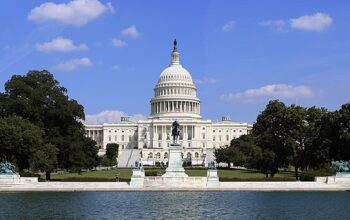Harvard University’s embattled president, Claudine Gay, received a complaint on Tuesday, outlining over 40 allegations of plagiarism against her, The Washington Free Beacon reports.
This document exposes additional cases of misconduct beyond what was previously reported and puts the spotlight once again on the Harvard Corporation, the university’s governing body. The Harvard Corporation had issued a statement of support for Gay’s leadership and initiated an “independent review” of her scholarship. However, the new allegations make the probe more complex and extensive.
The complaint was submitted to Harvard’s research integrity officer, Stacey Springs. It includes examples of plagiarism already reported by the Washington Free Beacon and other outlets, as well as dozens of new cases in which Gay didn’t attribute authors properly for quotes or paraphrased content. The allegations range from missing quotation marks around a few phrases or sentences to entire paragraphs lifted verbatim. The complaint includes multiple instances of plagiarism in seven of Gay’s publications, which is two more than previously reported and accounts for almost half of her scholarly output.
According to the previous statement released by the Harvard Corporation, an independent review of Gay’s work was initiated in October. The probe’s focus was on three papers, and it found “no violation of Harvard’s standards for research misconduct.” The new allegations appear to run counter to this finding, showing that Gay’s alleged misconduct goes beyond what the Corporation initially investigated. The authenticity of the allegations is yet to be confirmed, but they expose the ethical issues and academic integrity concerns that accompany academic research, particularly in high-profile contexts like Harvard.
During the investigation, a web-scraping tool was executed, but no result was found. This finding raises doubts about the effectiveness of the techniques used to identify misconduct, particularly in complex cases like this one. It also shows that universities and research institutions must develop more comprehensive and efficient methods to detect plagiarism and research misconduct. The lack of results should also be communicated to Gay and the broader academic community, highlighting the need to improve research guidelines and enforcement in the higher education sector.
Harvard’s reputation as a leading educational institution is at stake, and the outcome of the independent review will have implications for Claudine Gay’s career as well as for academic integrity more widely. Gay herself has not commented on the new allegations, but it is essential for universities to address the issue of plagiarism and misconduct promptly and transparently, providing the necessary support and resources to ensure academic integrity is maintained.

















